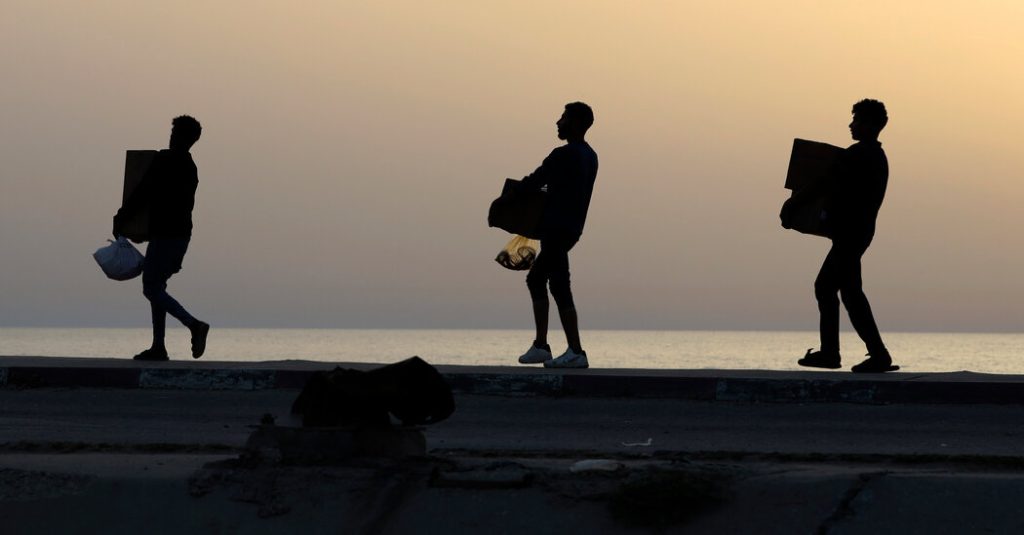In the week since the U.S. military and allies attached a temporary pier to the Gaza shoreline, numerous logistical challenges have arisen. There has been a lack of humanitarian aid reaching Palestinians in the besieged strip due to looting of aid trucks and security concerns. The U.N. has had to suspend operations due to safety issues, with some areas going without medical supplies for several days. The pier project was always expected to be difficult, as U.S. troops are not on the ground in Gaza, leaving the operation incomplete.
Despite efforts to alleviate the humanitarian crisis in Gaza, the situation remains dire, with thousands dead or wounded. The International Criminal Court’s chief prosecutor has accused Israeli leaders of using starvation as a war tactic, causing intense hunger among the population. Aid groups report that desperate Palestinians are forcibly taking aid from trucks, leading to further difficulties in distribution. The lack of police escorts for convoys has made it extremely challenging to deliver aid to distribution centers.
President Biden announced the pier project in March, aiming to address the impending famine in Gaza. Approximately 1,000 American troops were involved in setting up the infrastructure alongside an Army ship off the coast. While some aid has reached warehouses, the operation falls short of its goals, with only 70 trucks arriving in the first week. Three service members involved in the project have sustained noncombat injuries, highlighting the risks involved in the operation.
Military officials have stated that distributing humanitarian aid is more challenging than setting up the infrastructure. Past efforts in Somalia have shown that having troops on the ground to protect aid deliveries is crucial for success. In Gaza, the lack of a secure environment for aid distribution has led to looting and security concerns. The World Food Program has warned that the pier project could fail unless Israel ensures the safe distribution of aid.
With the cash crisis in Gaza worsening due to the ongoing conflict, the importance of aid to impoverished Gazans cannot be overstated. Aid organizations have stressed the need for better coordination and planning to ensure aid reaches those in need efficiently. The sea operation is considered less effective than a land route, and even if it reaches its ambitious goals, it may still fall short of providing enough assistance to the war-ravaged population.
Criticism has arisen over the expensive and inefficient nature of the pier project, with some diplomats questioning the lack of consultation with the military before its implementation. Pentagon officials have had to scramble to put the plan in place and are facing challenges in making it successful. It is clear that more coordination and cooperation are needed among international aid organizations and the I.D.F. to ensure the safe and efficient delivery of aid in Gaza.


